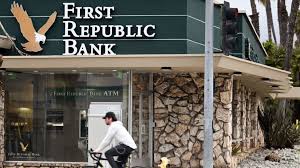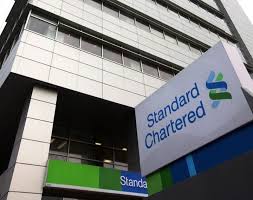According to sources on Saturday, US regulators are attempting to finalize the sale of First Republic Bank over the weekend. This would make it the third sizable US bank to fail in the past two months.
According to sources familiar with the situation, bidders competing for First Republic in an auction being conducted by the Federal Deposit Insurance Corp include Citizens Financial Group Inc, PNC Financial Services Group, and JPMorgan Chase & Co. According to Bloomberg, US Bancorp was one of the banks that the FDIC requested to submit a bid from.
As per two sources with knowledge of the situation, Guggenheim Securities is counseling the FDIC.
Three of the sources reported that the FDIC procedure began this week. One of the sources stated that the bidders were instructed to submit non-binding offers by Friday and that they spent the weekend reviewing First Republic’s books.
According to three of the sources, a deal is anticipated to be revealed on Sunday evening before Asian markets open, and the regulator is likely to declare that it has seized the lender at the same time. One of the sources indicated that the deadline for bids is Sunday noon.
One of the individuals stated that the interested banks are currently weighing their options to determine what they would like to bid for and that it is possible that lenders will offer to buy all of FRC’s deposits as well as a sizeable portion of its assets and some of its liabilities.
An inquiry for comment was not immediately answered by US Bancorp. The FDIC, Guggenheim, First Republic, and the other banks all declined to comment.
After Silicon Valley Bank and Signature Bank failed due to a deposit flight from US lenders less than two months ago, the Federal Reserve was forced to intervene with emergency measures to stabilize the markets.
Despite the fact that markets have since stabilized, any deal for the First Republic would be closely scrutinized to see how much support the government is willing to offer.
Officially, deposits up to $250,000 are insured by the FDIC. Regulators, however, made the extraordinary decision to insure all deposits at Silicon Valley Bank and Signature because they feared additional bank runs.
It is uncertain whether regulators would also need to take such action at First Republic. The Treasury Secretary, the President, and supermajorities of the Federal Reserve and FDIC boards would all need to approve them.
The FDIC is looking to some of the biggest US lenders to find a buyer before shutting the bank. One of the individuals claimed that big banks had been urged to compete for the assets of FRC.
JPMorgan currently has more than 10% of all bank deposits in the country, and adding more would require a special government waiver.
“For a large bank to buy all or most of the bank could be healthier for First Republic customers because it could put them on a broader and more stable platform,” said Eugene Flood, president of A Cappella Partners and independent director at First Citizens BancShares and Janus Henderson, who was speaking in his individual capacity. Last month, First Citizens and the failed Silicon Valley Bank reached an agreement.
AMAZING FALL
The son of a local banker in Ohio, James “Jim” Herbert started the First Republic in 1985. The bank was purchased by Merrill Lynch in 2007, but after being sold by Merrill’s new owner, Bank of America Corp, in the wake of the 2008 financial crisis; it was once again listed on the stock market in 2010.
For many years, First Republic used special mortgage and loan rates to entice high-net-worth clients. Due to this strategy, it was more exposed than local lenders who served less wealthy clients. The percentage of uninsured deposits at the bank was high, at 68%.
The San Francisco-based lender struggled to raise money as more than $100 billion in deposits fled during the first quarter.
Despite an initial $30 billion rescue from 11 Wall Street banks in March, the efforts were unsuccessful, in part because purchasers were hesitant to commit to the idea of realizing significant losses on its loan book.
According to a person with knowledge of the issue, the FDIC felt there was no longer time to try to rescue the lender through the private sector because the lender’s situation had gotten worse.
First Republic’s market value has fallen from its high of $40 billion in November 2021 to a low of $557 million by Friday.
As it became apparent that First Republic would be placed under FDIC receivership on Friday, shares of a few other regional banks also dropped, with PacWest Bancorp and Western Alliance both losing ground after the bell.

















